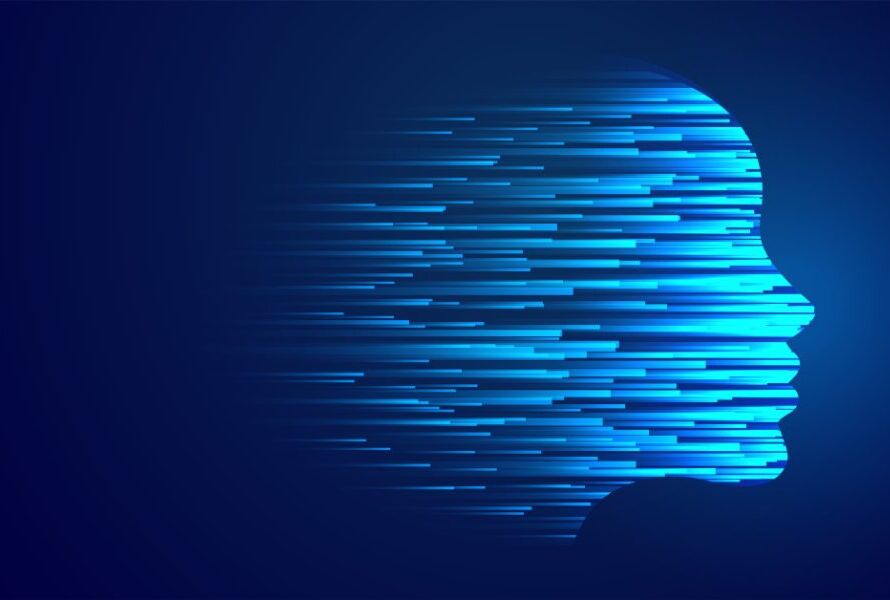We dwell in an period of uncertainty: the grey space between the introduction of a brand new disruptive know-how and its common adoption. Throughout this time, society is left scrambling for solutions on the right way to handle life with accessible synthetic intelligence, for higher or worse. And one in all AI’s largest casualties is our training sector.
May AI completely change training for the more severe? Or may AI be the catalyst of a constructive shift in training?
Right now, we’ll hear from trade leaders and what they suppose of the present state of training within the age of AI. Their views vary from how AI enhances educational advising to methods of stopping an AI-Pushed instructional divide. Let’s discover the adjustments that these consultants imagine ought to or mustn’t occur that folks will not be conscious of.
The Methods AI Is Perpetually Altering The Training Panorama
To make clear the potential affect of AI on the trendy training system, we have gathered insights from eight consultants, together with lecturers, a senior AI analysis scientist, a managing legal professional, and extra.
AI Enhancing Educational Advising
“There was lots of dialogue concerning the unfavorable points of AI for training, comparable to issues about its capacity to facilitate plagiarism, and even substitute human instructors. Nevertheless, there are additionally many potential advantages of AI in training.
Particularly, one change that folks will not be conscious of is that AI will help make educational advising simpler by noticing patterns that may lead a scholar to fail or drop out. It will enable human advisors to intervene earlier than issues happen. AI might also counsel programs of motion, however people should at all times apply their very own judgment and sense of ethics to make sure optimum outcomes.”
— Gene Locklear, a Senior AI Analysis Scientist from Sentient Digital, Inc.
Common Ideas
With regards to AI’s utility in training, we’ve develop into accustomed to listening to about its unfavorable implications. College students getting falsely flagged as AI, overreliance on LLMs, the prevalence of AI hallucination — all of which, we’ve lined extensively in our weblog. These are actual points with actual implication, and it’s laborious to disregard that.
Nevertheless, there’s proof of what Locklear has talked about. A current examine from the College of Toronto, a widely known establishment for deep studying which spawned AI titans comparable to Geoffrey Hinton and Ilya Sutskever, tells us that LLMs have limitless potential in profession advising for post-graduate college students.
Now, think about if we may apply that to pre-undergraduate college students. In 2019, a Nuffield Basis examine finds that 15% of its respondents are undermatched with their school course, resulting in educational underperformance. Utilizing AI as a predictor for the optimum course can shut this hole and assist college students in the long term.
As early adopters of latest know-how, it’s solely pure that we’re listening to concerning the unhealthy stuff first. However I imagine that, in the long term, AI will develop into an efficient driver of training, and educational advising is the place we begin.
Detecting AI-Assisted Pupil Work
“As Pure Language Processing AIs proceed to enhance, lecturers will discover it more and more troublesome to find out if scholar papers are written with assistance from AI. It is getting harder and harder to inform if a scholar’s work is generated with AI.
To resolve this, many lecturers have elected to have college students write essays on paper throughout class time. This fashion, lecturers might be positive college students do their very own work. This strategy helps guarantee authenticity and originality whereas maintaining college students trustworthy about their sources.”
— Dylan Callens, a instructor and a blogger for The Lecturers’ Weblog
Common Ideas
Right here at Gold Penguin, we’ve lined nearly each AI detector software available on the market. We additionally frequently check its accuracy towards human, AI-generated, and tweaked writing. One in every of our largest issues is how inaccurate it’s, and the way it may end up in harmless college students receiving educational sanctions for work they really did.
The best way we see it, it’s a two-way concern. For educators, how can they efficiently mitigate the consequences of AI of their school rooms? For college students, how can they keep away from getting falsely accused of utilizing ChatGPT and the like when detectors are inaccurate?
Earlier than the common adoption of LLMs in training, this concern should actually be solved. Callens presents a easy but elegant manner of circumventing the issue. Nevertheless, as extra industries shift to a hybrid setup, his technique could develop into tougher to implement sooner or later.
Balancing AI and Emotional Intelligence
“On one hand, AI brings unimaginable effectivity and customized studying alternatives, however on the opposite, it dangers making a one-size-fits-all strategy, doubtlessly overlooking the nuanced wants of particular person college students.
In my expertise, emotional intelligence is crucial in studying, one thing that AI may wrestle to copy or deal with. A key change I might counsel is integrating AI instruments with a powerful emphasis on creating emotional and social expertise. That is about making certain and sustaining a stability the place know-how enhances the human points of training comparable to empathy, creativity, and interpersonal connections.”
— Bayu Prihandito, an authorized psychology knowledgeable, life coach, and the founding father of Life Architekture.
Common Ideas
For years, the Turing Check was the trade customary in measuring behavioral intelligence in AI. Some scientists argue that ChatGPT has already surpassed it. Some additionally argue {that a} chatbot from the Sixties referred to as Eliza beat ChatGPT in a Turing Check.
The actual fact of the matter is, there’s no dependable manner of measuring intelligence in AI, a lot much less emotional intelligence. If AI is the way forward for training, then there should be a approach to combine or mimic emotional capability of their techniques. We are able to’t have the following era of scholars be taught with out empathy.
Disruption Requiring New Abilities Focus
“Generative AI and different AI-powered writing instruments will deliver each advantages and challenges to the classroom, and I’ve combined emotions about this. I imply, views on the impacts of platforms like ChatGPT in training are all attention-grabbing and legitimate. However all I do know is that AI will certainly disrupt the trendy training system.
For instance, AI can shortly write an essay a couple of e-book for a scholar. However then, is it actually proficiency on the coed’s half? Future training may have to shift its focus extra in the direction of complicated evaluation and interpretation of views, demanding deeper important pondering. Educators might want to think about instructing and evaluating expertise that AI struggles to imitate, comparable to important pondering, creativity, communication, and problem-solving.
With the arrival of superior instruments like GPT-4, educators will face important challenges in adapting. Will probably be fascinating to see how this know-how impacts the strategies faculties use to guage scholar efficiency.”
— Lucas Ochoa, the founder and CEO of Automat
Common Ideas
AGI is a major milestone in synthetic intelligence, however college students had been fast to catch on its largest flaw: unregulated entry. Due to this, college students can now create essays or code that may usually take days in only a single immediate.
This presents a brand new problem whereby we are able to’t precisely consider a scholar’s proficiency. Search engines like google and yahoo are one factor, however to have a chatbot provide you with an correct and articulate reply is a totally completely different ballpark. As Ochoa suggests, there should be an emphasis on assignments that require extra important pondering sooner or later.
Viewing Potential and Dangers
“AI has important potential to remodel training, however we should thoughtfully form its implementation. AI tutoring techniques that adapt to college students’ wants may present extra customized and equitable studying. Nevertheless, if faculties develop into overly reliant on AI, it could undermine the roles of human lecturers.
We should stability know-how with the important socio-emotional expertise that lecturers domesticate. AI ought to increase high quality instruction, not substitute lecturers. One other threat is knowledge privateness—gathering scholar analytics dangers mishandling their private info. Strict safeguards are wanted to forestall misuse.
We should additionally right AI bias that might propagate unfair therapy. With vigilant governance, AI presents enormous upsides, like enabling personalized training at scale. However it requires growth aligned to human values, not simply capabilities. Now we have an obligation to information AI’s emergence in constructive methods. If carried out responsibly, AI could profoundly enhance instructional alternatives.”
— Vikrant Shaurya, CEO of Authors On Mission
Common Ideas
Each new know-how comes with its personal set of dangers. It simply so occurs that, with AI, that is available in one of the vital vital points of society: training.
Aside from what Shaurya has talked about, we must also contemplate the next dangers of AI in training:
- Demographic Bias. Since LLMs are skilled on a big and standardized dataset, biases towards a sure demographic may emerge if they’re important sufficient within the coaching set. As an example, a Stanford examine finds that AI detectors usually tend to attain a false constructive conclusion for essays created by non-native English audio system.
- Information Possession. Who owns the information contained within the coaching set? How are their knowledge protected? That is important sufficient that some authors contemplate suing OpenAI for copyright infringement.
- Lack of Experience. Dependence on AI may end in educators and college students dropping contact with their data and experience over time.
Endangering through Overreliance
“The affect of AI on the trendy training system is a double-edged sword. Whereas it guarantees customized studying and effectivity, it dangers widening the digital divide and diminishing the irreplaceable human components in training.
The important change that wants cautious navigation is sustaining a stability between AI and human interplay. Overemphasis on AI’s technological benefits may overshadow the important roles of empathy, moral steering, and social engagement that educators present.
It is essential to acknowledge that AI ought to increase, not substitute, the human contact in training, making certain that the system stays inclusive and holistic, fairly than purely data-driven and impersonal.”
— Alex Stasiak, the CEO and founding father of Startup Home
Common Ideas
In line with an article by Forbes earlier this yr, round 50% of school college students use ChatGPT to finish their assignments and write essays. Even when we assume that solely a small fraction of that retains coming again to ChatGPT, it’s nonetheless a major sufficient quantity that educators are rightly apprehensive about college students’ overreliance on LLMs.
Everyone knows that abstinence doesn’t work. As an alternative, there should be an emphasis on instructing college students the right way to correctly use AI as a software for his or her workflow. We can not stop synthetic intelligence, so accountable adoption is the one manner ahead.
Preserving Human Interplay in AI Integration
“AI may considerably affect the trendy training system by doubtlessly changing conventional instructing strategies with customized studying experiences. Nevertheless, one change that needs to be approached with warning is the whole substitute of human interplay.
The worth of teacher-student relationships and peer-learning experiences is irreplaceable. AI needs to be used to reinforce and assist these relationships, not substitute them. The main target needs to be on a balanced integration the place AI aids studying with out undermining the important human components of training.”
— Einav Biri, CEO of FARUZO
Common Ideas
There are lots of research that assist the affect of human interplay in training, even earlier than the rise of AI. As an example, a 2013 examine from the Western Michigan College highlights that having energetic engagement fosters a “constructive classroom surroundings and [establishes] a group of learners who assist one another.”
The crux of the matter is that, at the same time as society and know-how evolves, we should not lose the human consider training. As Biri suggests, that is a necessary component in instructing, maybe an important.
Stopping an AI-Pushed Instructional Divide
“AI-powered instructional techniques may find yourself being costlier than conventional strategies, making a divide the place solely the rich can afford cutting-edge know-how and entry the very best lecturers. This units the stage for a two-tiered training system, leaving these with fewer assets behind.
This potential state of affairs underscores the significance of addressing not simply the advantages but additionally the societal implications of AI in training. We should advocate for insurance policies and initiatives that guarantee equitable entry to AI-powered instructional instruments, stopping the formation of a system the place the standard of training is set by monetary means.”
— Riley Beam, a managing legal professional from Douglas R. Beam, P.A.
Common Ideas
Throughout the globe, world leaders have been discussing correct AI governance legal guidelines which may assist mitigate its affect not simply on training, however on society usually. Even OpenAI, the corporate behind ChatGPT, is taking precautions to forestall overreliance on AI.
Beam means that AI may create a divide whereby college students with much less assets are left behind. Nevertheless, this will not be a major concern shifting ahead if OpenAI continues to be probably the most dominant pressure within the subject and retains their final objective of making a universally helpful AGI. And, with Altman again on the helm after his rollercoaster firing in November, there’s no purpose to suppose they’re backing out of this promise.
To Put It Merely
Let’s return to the query requested within the title: How will AI destroy the trendy day training system?
The reply may not be as insidious as you suppose.
AI will destroy modern-day training to make manner for the training of tomorrow.
Will AI develop into a internet unfavorable for training? Time will inform, however I don’t suppose so. 40 years in the past, college students didn’t use the web. 30 years in the past, there have been no search engines like google and yahoo. Training and know-how are so intrinsically linked that the previous adjusts to the whims of the latter. Every time know-how evolves, so does training.
Modern-day training can be out of date in 5 years. The form of what’s to come back is but to be decided, however I’m excited for the place AI takes us.



